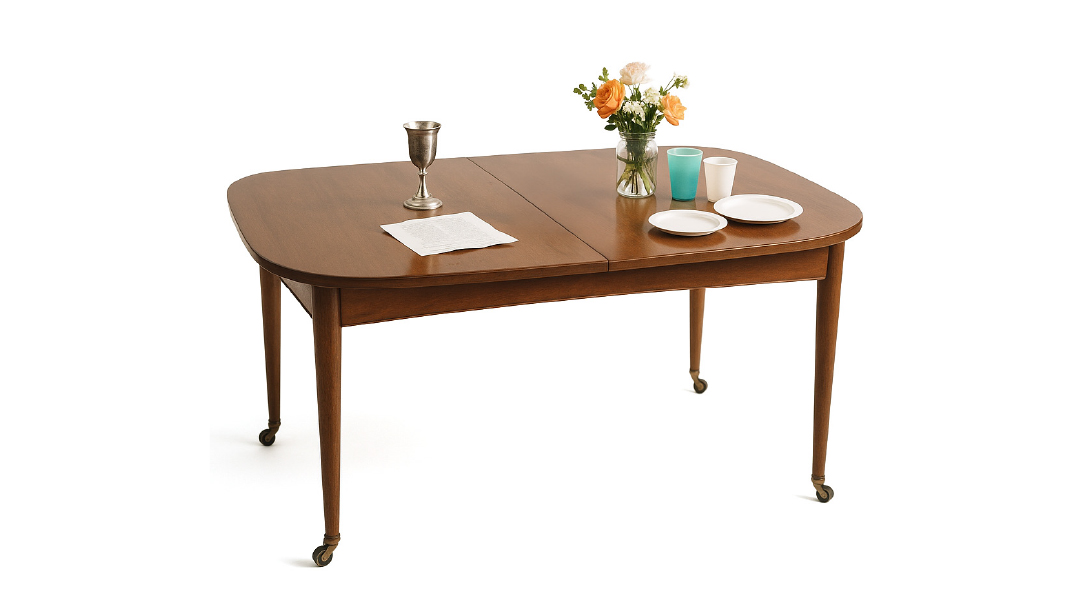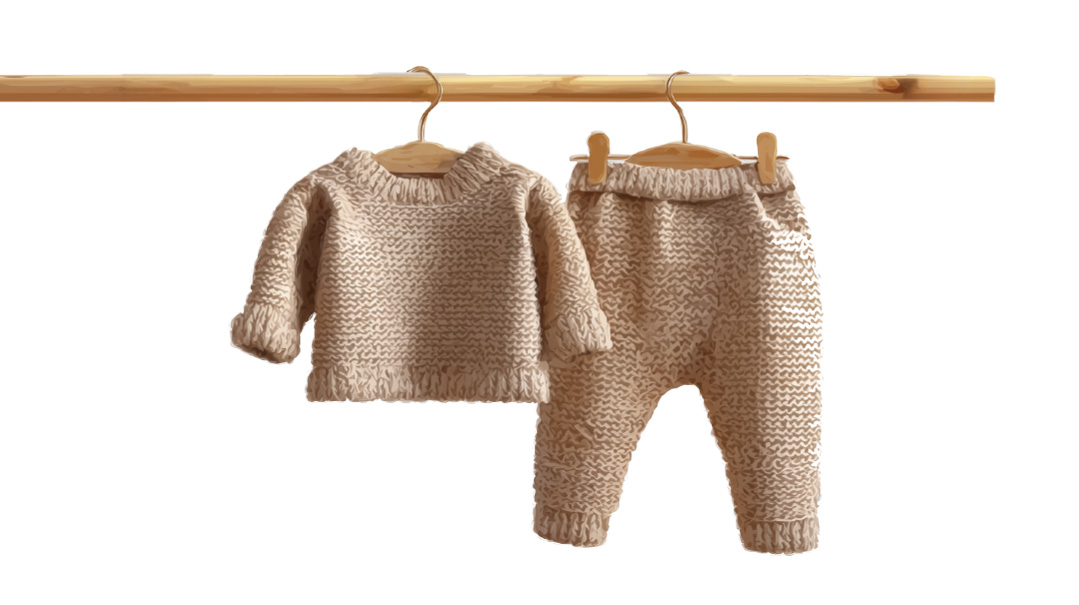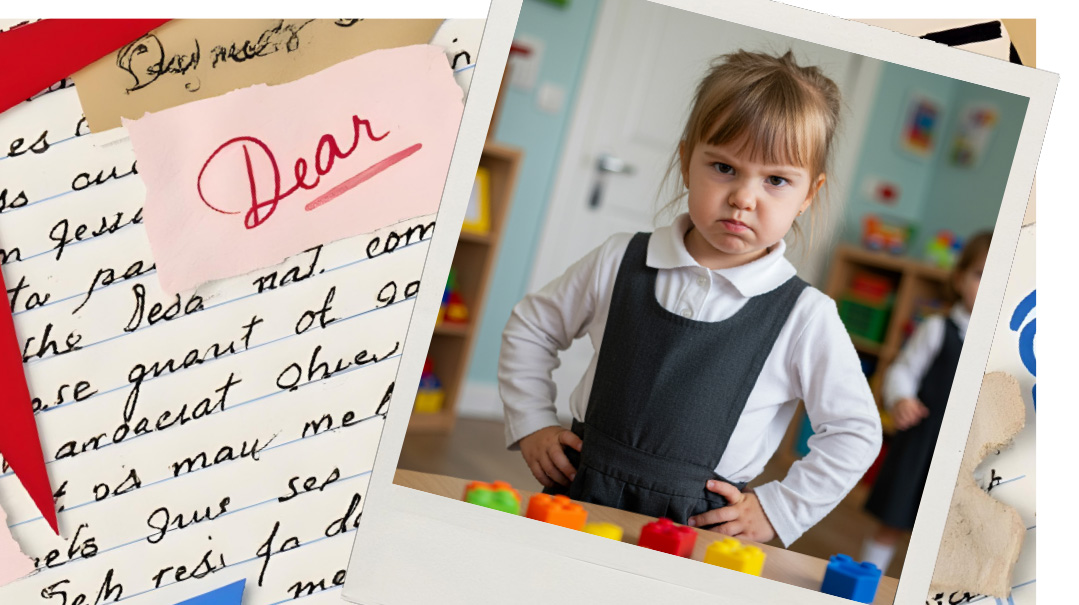More Precious than Pearls
| October 18, 2022With so many strikes against him, how would my son find his bashert?

I
understood early on that it wouldn’t come easy. It’s one of those realities we all know but don’t discuss in polite company: The “alef” shidduchim come with yichus, money, looks, status, as well as middos, yiras Shamayim, and Torah learning. Then there are “sug beis” shidduchim, which are missing the full dose of one of the above. The rungs continue… And our family’s status on the market had a gematria in the double digits.
Deep down, I understood that Hashem runs the world. He is mezaveg zivugim, and I don’t need to take societal pressure too seriously. The hopeful voice and the fearful voice conversed endlessly in my head during the two decades between the birth of my oldest son and the day we began to actively look for his shidduch.
But I’m getting ahead of myself.
Even when he was very little, I’d daven that Yosef marry young, marry once, marry well, and build a beautiful family with a wife he’d enjoy growing old with.
Not long after his bar mitzvah, I told him, “Yosef, you know I love you dearly, and give you what I can. But the most important things in life are not things I can buy or give you. Learn Torah well, invest in your learning, build your middos, and make a good name for yourself.
“The time will come when you’re ready to build a home. People look for money, yichus, and Torah. Your shidduch will come in the zechus of your Torah, as I don’t have much to offer in the other realms.”
During his teenage years, Yosef had the opportunity to have a meaningful conversation with an adam gadol, who told him, “Learn well, and you will build a beautiful family.”
Yosef held on to that brachah, that promise, as one guards a precious treasure, and he learned well.
Yosef had always been one of the youngest in his class, and before I knew it, the boys in his yeshivah were getting married. One after another: engagement parties, aufrufs, weddings, sheva brachos. Yosef had to balance his learning schedule with his friends’ simchahs.
Because he had a way with words, he was often asked to speak at these joyous occasions. He always had a good vort and a kind word for his friends. I imagined that with so many people seeing his many strengths on many occasions, the shidduch ideas would come pouring in.
They didn’t.
They hardly trickled.
My hopeful part gathered a group of mothers davening for shidduchim for their children. We made a list of names and committed to daven for each other’s children.
My fearful part got nervous. We weren’t getting many suggestions, and the ones that did come in didn’t sound remotely relevant. I asked around, got the numbers of some shadchanim, and started making calls myself.
I had so many wonderful things to say about my son — his sterling middos, his deep love of learning, his avodas Hashem, his commitment to doing the right thing, even under challenging circumstances. Yosef was a loyal friend, he made good choices. He showed maturity and depth beyond his years.
But none of the shadchanim asked me about any of the things I wanted to share. Instead, they asked what seminary I had gone to (I hadn’t), and what high school I had gone to (public). They asked intrusive and unhelpful questions about his mentally ill father.
Then they asked about my family. “Yes, there are respected rabbanim in our line of yichus.” (They had skipped generations.) Let people fill in the blanks on their own. But there were some gaping holes, and not everyone filled them with a generous heart.
I remember one particularly frustrating phone call with a shadchan who had actually been highly recommended. She told me about a girl, and when I told her that it didn’t seem to be an appropriate match, she pressured me to tell her why.
“Mrs. Rosen,* I’m looking for a shidduch for my 19-year-old chassidish son who wants to live a simple kollel life in Tzfas. He’s a boy dedicated to Torah and tefillah. He wants a wife who will wear a tichel and focus on raising a family. If she needs to work, she will take a job that doesn’t involve computers and Internet and leaves her enough time and energy to focus on building a family. I’ve been telling you about his personality, his middos, his intelligence, his she’ifos, his love of music and niggunim, and his various life skills.
“You are recommending a 23-year-old young woman who wants to live in a big city, is focused on advancing her career, and wants to wear a fashionable sheitel. From what I understand, the only things they have in common are that both of them have parents who are divorced, and fathers who suffer from mental illness. Do you believe that that is a good foundation on which to build a bayis ne’eman b’Yisrael?
“I appreciate your time and good intentions, but please call me with ideas that are suited to my son, not to the disadvantageous deck of cards that life has dealt him.”
Even after what I felt was a very clear explanation, she still insisted that I was making a mistake.
Sometimes, I felt devastated. My precious son had been through so much. He had faced more adversity in his early years than some people face in their entire lives. Time after time, he strengthened his emunah, carried his troubles to the beis medrash, and drowned them in his learning. He was helpful and kind, he had an ayin tovah.
It was baffling that so many families chose boys whose greatest challenge was getting to Shacharis on time, and bypassed a young man who had proven himself through fire and water. It broke my heart to think that he was being held back in life because of my mistakes and nisyonos.
I was frustrated, and I called some friends to let off some steam. I also decided to do something in the ruchniyus realm. What could I take on that would be a clear zechus to bring his shidduch closer? I found a kabbalah: No more talking lashon hara about shadchanim!
The yetzer hara tested me diligently. Each phone call and every suggestion left me more and more disheartened.
Of course, Hashem had a plan.
Yosef, meanwhile, was making the best of his time in yeshivah. When most of his close friends had married and moved on, he moved to a different yeshivah, where he could continue to be challenged to learn and grow. Now his list of invitations grew to include brissim and kiddushim. I continued to pray.
In his free time, Yosef took on a project. He encouraged bochurim in the community to write chiddushei Torah, inspired ideas, thoughts, poetry, and questions, which he edited and published as a newsletter.
The first time, he and a friend spent a few sleepless nights typing one letter at a time, trying to figure out the world of fonts, alignment, and graphics. Over time they smoothed out the technical details, and publishing the newsletter became a source of joy and inspiration.
The bochurim in the community jumped on board, and each edition grew longer than the last, with more and more boys wanting to be included. Yosef would also write his own chiddushim and ideas, which he enjoyed sharing with his friends.
For the Chanukah 2018 edition, Yosef wanted to write something special. He wrote about what it means for a bochur to develop himself during his yeshivah years. On one hand, he wrote, this is the time to discover and develop one’s own unique gifts. On the other hand, Yosef posited, being Jewish is about being a part of the klal.
He argued both sides back and forth so convincingly that the reader was left undecided. The last paragraphs pulled the ideas together in perfect harmony: Yosef demonstrated how each person developing his unique gifts with the intention to give back and enrich the community will create an ideal, cohesive community filled with unique and precious individuals sharing their respective strengths.
I enjoyed reading my son’s writing and had a lot of nachas from him; little did I know that through this, Hashem was planting the seeds of our yeshuah.
That summer, a friend called me and asked if by chance I had an extra set of pearls that I wanted to sell. I wasn’t surprised to hear the following morning that her son had gotten engaged.
I decided I would prepare for Hashem’s yeshuah, and I set out for a jewelry store in Yerushalayim. The owner welcomed me with a mazel tov and asked me what I was looking for.
“What does the kallah looks like: is she tall? Short? Thin? Full?”
“I don’t know,” I answered.
“Do you mean she’s somewhere in the middle?”
“No, I mean that I don’t know. I haven’t met her yet.” In response to her confused look, I continued, “You know, like in the Baal Shem Tov story, you buy the stroller and then you get the baby?”
The proprietress laughed and proceeded to show me a lovely set of pearls: necklace, bracelet, earrings, the works. I bought the ensemble and placed it, in its beautiful box, on the top shelf of my closet.
It sat for months.
There were more calls during this time, some maybes, a couple of meetings with prospective fathers-in-law that left my son’s head spinning. I couldn’t fathom how anyone could spend hours speaking with my precious, intelligent, thoughtful, learned son, and then reject him.
Yosef described one meeting like a KGB interrogation. Another one made him seriously wonder if he wanted to marry into a family with such a father. He tried. I tried. It seemed to be only getting harder.
Pesach came. We had a lovely Seder and were settling into the pace of Chol Hamoed when I got a call from a new shadchan. She was the daughter of the adam gadol who had given my son that powerful blessing — that if he learned well, Yosef would build a beautiful family.
The shadchan suggested the Levi girl, from right in our neighborhood. I knew the Levis, but hadn’t realized they had a daughter in the parshah. The Levi girl was chassidish, from a Sephardic family. Her father is a talmid chacham, her mother a baalas chesed. She herself is intelligent, plays violin, was said to be a bit shy, but shows her good sense of humor once she’s comfortable with people. Like my son, she was the oldest in the family, responsible and caring. A girl who wants to wear a tichel and build a strong Torah home in Tzfas. It sounded too good to be true.
“Did you speak to them yet? Are they interested?”
“Yes, they’re interested. If you’re ready, the father would like to meet with Yosef tomorrow afternoon.”
“Okay! I’ll make a few calls and get back to you.”
It was wonderful to be able to call people I knew and trusted, people from our neighborhood and community who’d known the girl and her family their entire lives, and who also knew and cared about my son. It was wonderful to hear the things people said about the Levis and their oldest daughter.
She was intelligent, kind, mature, responsible, had hopes and interests similar to Yosef’s. One after the other they said, “What a perfect idea! Shame I didn’t think of it first!”
Yosef was set to meet Mr. Levi at a local beis medrash at two p.m. the following day. When he called at two thirty, I was alarmed. His previous meetings had lasted hours; what went wrong? Had he not found the place? Had there been a mistake?
“No, Ima, we met, spoke about a few different things, he asked me some questions, and it went really nicely. He told me that he was pleased to meet me and would tell the shadchan that they would like to move forward.”
Minutes later my phone rang again. “Would you like to meet the young lady in another hour and a half?” the shadchan asked.
We met and had a short and sweet conversation. I asked a few questions, she answered with a blushing smile. I told some stories about my son, and she laughed good-naturedly. She was modest and lovely and pleasant. After about 25 minutes, neither of us had much more to say. It just seemed obvious that things should move forward.
That evening, the two of them met. Yosef smiled shyly and shared some thoughts and ideas. She was very quiet. They spoke, or rather he spoke, for about 45 minutes.
I walked by the room where they were sitting and speaking and teared up. It just seemed right. She even looked like our family. When Yosef came out, I asked him what he thought.
“It seems good, but she barely spoke. I can’t get engaged to someone without getting a sense of her personality.”
The shadchan called soon after. The Levis were ready to close.
My head was spinning. This had happened so fast I didn’t know what to think! I explained Yosef’s position, that he wanted to hear more from her. We agreed to a second date the following day, and the shadchan said she’d pass on Yosef’s message.
They met again the following day. Yosef came out glowing. It seemed that the young lady had gotten past her shyness.
“Are you ready to get engaged?” I asked.
“Almost,” he smiled. “I just need a bit more time to process all this.”
For me, a baalas teshuvah, the pace was dizzying, but for my son it was just fine.
We left the house to make a Chol Hamoed visit to our rav, and after the small talk, Yosef asked the rav, who knew the girl’s family well, if he thought this would be a good shidduch.
“I don’t see any reason why not, but this is a question we need to ask you. Do you think that this is a good idea?”
“My heart tells me that it is,” Yosef answered. “Kevod Harav, can I trust my heart on this?”
“Absolutely!”
“Mazel tov, b’shaah tovah!”
We walked out, my head spinning even faster.
The phone rang. “Are you ready?”
I covered the receiver and spoke to my son. Yosef didn’t want to get engaged without his personal rav and mentor, who lives in Beit Shemesh.
When he called, the rav said, “Actually I’m on the bus to Tzfas right now! Sure, I’ll be there by eight thirty p.m.”
It was happening! We’d be hosting my son’s engagement party that night!
It was a Chol Hamoed evening in Tzfas. Everything was closed. No jewelry stores, no supermarkets, no flowers. I didn’t have enough cakes, drinks, paper goods, tables, chairs, anything!
“Maybe the other side wants to wait until tomorrow when we can put something more respectable together?” I asked tentatively. “No? I understand. They’ll bring some drinks and Pesach cookies? Okay!”
I had under two hours to set up an engagement celebration. Still in shock, I knocked on my neighbor’s door.
“Do you have some drinks? Or tables? Or chairs? Or maybe an extra tablecloth? It looks like we’re making a simchah!”
She was pulling a cake out of the oven as I stood stuttering at her door.
“Here! Take this! I made it for you! I’ll send my daughters over with a few more things in a moment.”
Before I knew it, my daughters had collected everything we needed from our generous neighbors. Thank G-d, I had the pearls on my top shelf, ready to be given to their rightful owner, Pnina, whose name means pearl.
I was concerned how my family would respond to my allowing my son to get engaged to a girl who none of us had known existed only 48 hours earlier. Of course, Hashem had already taken care of that.
Only after Pnina arrived for the vort did I hear the story. A story of prayers and tears that had started the previous Chanukah.
About 200 copies of my son’s Chanukah newsletter had been printed. The kallah’s grandfather taught in the yeshivah where some of the bochurim who contributed learned. They gave him a copy, which he read, enjoyed, and passed on to his son-in-law.
Mr. Levi brought it home, where Pnina picked it up and read it cover to cover.
After reading Yosef’s article, she asked her mother, “Do you know who this boy is? Yosef Levin? Can you please find him for me? This is the boy I want to marry.”
With all of the chesed she does, Mrs. Levi knows nearly every family in Tzfas, including mine. But Yosef goes by his father’s last name, while my last name is different. Pnina mentioned it a couple of times over the next few months. She even looked up the name Levin in the Tzfas phone book, but reached a dead end.
So she prayed. “Hashem, nobody else can help me. Help me please! Help me find the author of this article. Please help me be introduced to my husband.”
At the same time, the shadchan, relatively new to the world of shidduchim, was also praying, “Hashem, I would love to make a good shidduch. Please help me.”
By the time the shadchan suggested Yosef as a shidduch, Mr. and Mrs. Levi had long forgotten what Pnina had said months earlier. They asked around and heard wonderful things about Yosef.
They weren’t concerned with his family situation; they were looking for a serious, kind, young, chassidish talmid chacham for their daughter, and everything they heard confirmed that Yosef could be the one.
Still, they were concerned that Pnina, their 18-year-old daughter, wouldn’t be happy to discover that the first young man she’d be meeting came from a divorced family. So they started talking about his strengths and then tried to present the background as gently as they could.
Pnina was becoming impatient, “Just tell me his name!”
“Yosef Levin.”
“Yes, I’ll marry him.”
“What?!”
“Yes, Ima, don’t you remember? I asked you months ago to find me this boy. I’ve been davening to finally meet him, and now my prayers have been answered. I don’t care about all of that. This is the boy I want to marry.”
Pnina had seen Yosef’s heart and soul in the words of Torah he had written. She wanted to be his partner on the journey of growth and discovery; she knew that he was meant for her. On their second date, Pnina shared this story with Yosef.
Now we were here at the vort, surrounded by friends and family. The Levi tribe kept pouring in, more than a dozen aunts and uncles on each side. My side of the family was much smaller, but I needn’t have worried about how they’d react to Yosef’s engagement. When my mother and my family heard Pnina’s story, all they could say was, “Mazel tov!”
And yes, the pearls fit perfectly.
Postscript:
Yosef and Pnina have been married for three years, and are truly building a beautiful family together. I told Pnina that I’d written this story to send in for publication, as I felt that it needed to be shared.
Pnina asked me to share that she’s glad she married Yosef because of what he went through — not despite what he went through. Yosef built himself to what he is today in ways that no one else she knows has, and she wouldn’t change any small detail for anything in the world.
My dear kallah, Pnina, more precious than pearls, was worth waiting for.
(Originally featured in Family First, Issue 814)
Oops! We could not locate your form.







